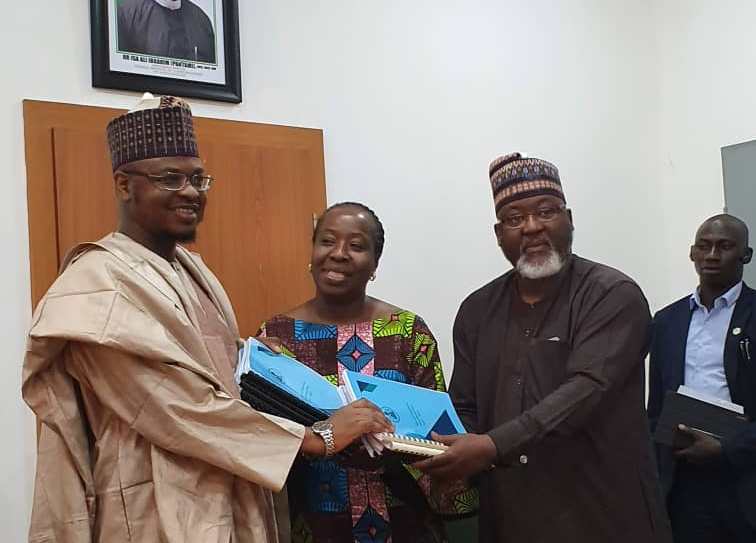The latest global ranking in this year’s ICT Development Index (IDI), the International Telecommunication Union (ITU) has once again kept Nigeria at 143rd where it was last year.
Otherwise, the country’s position remains unchanged, suggesting that not much was done within the period under review in Nigeria.
The IDI is a feature of the Measuring the Information Society Report (MISR), which the ITU released during its World Telecommunication/ICT Indicators Symposium Wednesday.
Developed by the ITU in 2008, the IDI is a composite index that combines 11 indicators into one benchmark measure, which can be used to monitor and compare ICT developments between countries across the world.
The ranking index has been described as a tool for monitoring progress towards a global information society and a core feature of the MISR.
Business Hilights gathered that the 2017 IDI edition ranks the performance of 176 economies with regard to ICT infrastructure, use and skills, allowing for comparisons to be made between countries and over time.
However, Nigerian industry players who spoke to our correspondents on why Nigeria failed to rise but stayed where it was in 2016, traced the problem to the state of the economy and government’s forex policy inconsistency.
According to the President of Association Telecoms Companies of Nigeria (ATCON), Engineer Olusola Teniola, “First of all, the Nigerian IT industry suffered what I can call headwinds within the period under review. These reflected in the devaluation of naira to dollar”.
He said the scenario had a very bad impact on consumer spending and also affected the ability of operators to invest more on networks expansion and needed upgrades.
Continuing, Teniola averred that “The period saw scarcity of forex which discouraged networks in rolling out new sites and upgrades. Remember, 2016 did not only impact the Nigerian economy, but any economy that relied on oil and gas sales.
“This forced Nigeria to start diversifying her economy. However, the diversification seems to be taking longer time.
He argued further that the ranking may not change easily for Nigeria until government creates an environment that is condusive and enabling for operators in the industry to push in much needed forex, FDI and network expansion.
“You know currently we are at 21 per cent penetration which is against the provisions of the National Broadband Plan (NBP), and we had been at 21 per cent for almost a year.
“Definitely the industry is in need of quick intervention of the government to enable us increase broadband penetration from 21 per cent to 30 and beyond.
“We in the industry believe that once the government does the needful, and the ITU goes to check again, they will definitely discover a massive difference and that time, Nigeria ranking will rise considerably,” ATCON boss noted.
Also speaking in another telephone interview on Monday, the Executive Secretary of Association of Licenced Telecoms of Nigeria (ALTON), Gbolahon Awonuga, observed that the challenge for not rising as expected is rooted in the harsh nature Nigerian business environment within the period.
“Recall that the NCC auctioned broadband spectrum last year and it was not so successful as planned because only one operator got some slots. That result therefore forced the regulator to go back to the drawing board to do more awareness and education.
While noting that spectrum is very expensive, Awonuga argued further that “The ecosystem of business is not favourable as I said earlier”.
“Now if you look at broadband penetration, Nigerian Communications Commission (NCC), told us that it is at 21 per cent. What is their yardstick and how did they get the 21 per cent?
“Globally, every business is going broadband and as you know, voice business is going down. Currently, lastmile is not within reach in Nigeria.
“Even when we talk about broadband penetration, here in Nigeria is all about mobile which is not supposed to be so.
He explained that “Broadband is mainly measured internationally on the extent of your last mile which is optic fibre connections and access. The question is how many homes have fibe optic cables wired into. There are serious fears if the 30 per cent broadband target will be met next year based on what is on ground now”.
However, explaining more on the imports of the ranking, the director of the Telecommunication Development Bureau for the ITU, Brahima Sanou noted that “The most important aspect of the IDI is that countries should track their own year-on-year progress and make policy adjustments to grow their telecommunication or ICT sector”.
He said “This year’s results show improvements have been most significant among countries in the middle of the IDI rankings, many of which are middle-income developing countries”.
Besides, least developed countries improved their average IDI value, with mobile broadband attributed as the driving force behind bringing previously unconnected individuals online and catering for the ubiquitous data needs of the ICT ecosystem.
Details from the index showed that Africa has by far the lowest average IDI performance of any region. Only one country in the region, Mauritius, falls into the top half of the IDI distribution or exceeds the global average value for IDI 2017.
From the report, Nigeria lags behind South Africa, Senegal Mauritius and Seychelles, which are regarded as relatively high-performing on the African continent.
At the top of the distribution, Seychelles moved from fourth to second position, at the expense of South Africa and Cape Verde, while Gabon moved above Ghana, from seventh to sixth.
What can be seen as a surprise leap was the jumping of Uganda, from 24th to 20th position in the regional ranking which stationed Nigeria at a distant 143rd position. Efforts to get the views of the regulator, the NCC at press time failed.








